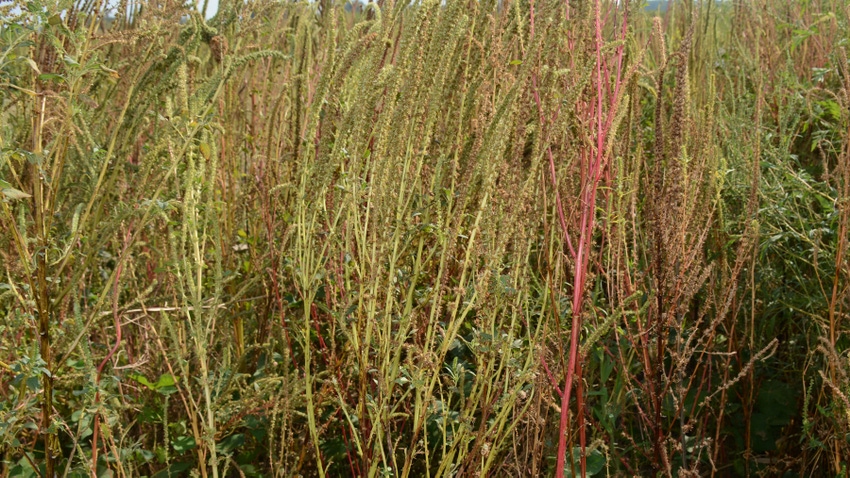
At a Glance
- Use residual herbicides and multiple modes of action.
North Carolina State University Extension Weed Specialist Wesley Everman is encouraging farmers that they can manage their weeds this year despite the ongoing challenge of herbicide resistance. But success will take active management and effective weed identification.
At this year’s winter corn and soybean production meetings, Everman provided a status report on resistant weed challenges and offered guidance on how to control such troublesome weeds as Palmer amaranth, common ragweed and Italian ryegrass. Everman continues to emphasize the importance of using residual herbicides and multiple modes of action.
“When we manage for resistance, whether it’s palmer, ryegrass or waterhemp, we want to be using our residual herbicides. Our group 15s are what we have been leaning on really hard. We want to keep using those, but we want to use either Group 14 PPO inhibitors, more Group 5, with metribuzin, where it’s possible. I know in light soil it can be an issue. But we need to be protecting those group 15s,” Everman said at a corn and soybean meeting Feb. 10 at the Wilson County Agriculture Center in Wilson.
For post-emergent weed control in soybeans, Everman said Liberty, Enlist and dicamba are still effective as of now, there is no resistance to these chemistries in North Carolina fields that Everman is aware of, but that could change.
“We want to rotate these chemistries. I know it can be a pain depending on technologies. At least we have Liberty stacked in with the 2,4-D and dicamba traits, so you can rotate what you spray on it in a season. If nothing else, rotate year to year,” Everman said.
“Our conventional herbicides are effective on most of our weeds. But we need to identify what weeds we are trying to kill when we’re picking these different herbicides. We get good control with all the grass products on our grasses.”
Weed identification is particularly important when it comes to controlling sedges.
Everman explains that yellow nutsedge can be controlled with the herbicides Basagran and Classic, while Pursuit and Raptor provide fairly good control. “However, if you have purple nutsedge, and you pick Basagran or Classic, you get zero control, and it’s going to be an issue going forward. The only one that’s any good on purple nutsedge is Pursuit.
“You’re not going to pick up all your weeds with just one conventional product going in the tank. You’ll have to pay attention to what your dominant weeds are and pick an herbicide appropriately. But for Palmer, especially, we recommend that strong PRE. Valor or metribuzin or one of your other PPOS, plus a group 15 or one of the premixes. We need two modes of action down there to protect each other.”
At the Nashville meeting, Everman credited North Carolina farmers for their weed management efforts. He said they are doing a good job. He encouraged them to keep it up and to continue to reach out to Extension for guidance.
“We can manage our weeds. You guys have been doing it. I feel like you guys have been listening since it was Dr. York (the now retired, much respected, long serving N.C. State University Extension weed specialist) talking about this (herbicide resistance) coming on the scene early on. If you guys weren’t listening, we’d have four or five- and six-way stacks of resistance already. Keep doing what you’re doing. Stay on top of what weeds you’re not killing, mix or match herbicides to try to keep Mother Nature guessing. Make sure you’re active in your management. Be effective with your weed identification so you know when something new shows up or something out of the ordinary isn’t getting controlled, so you can reach out to the right folks for help.”
About the Author(s)
You May Also Like






